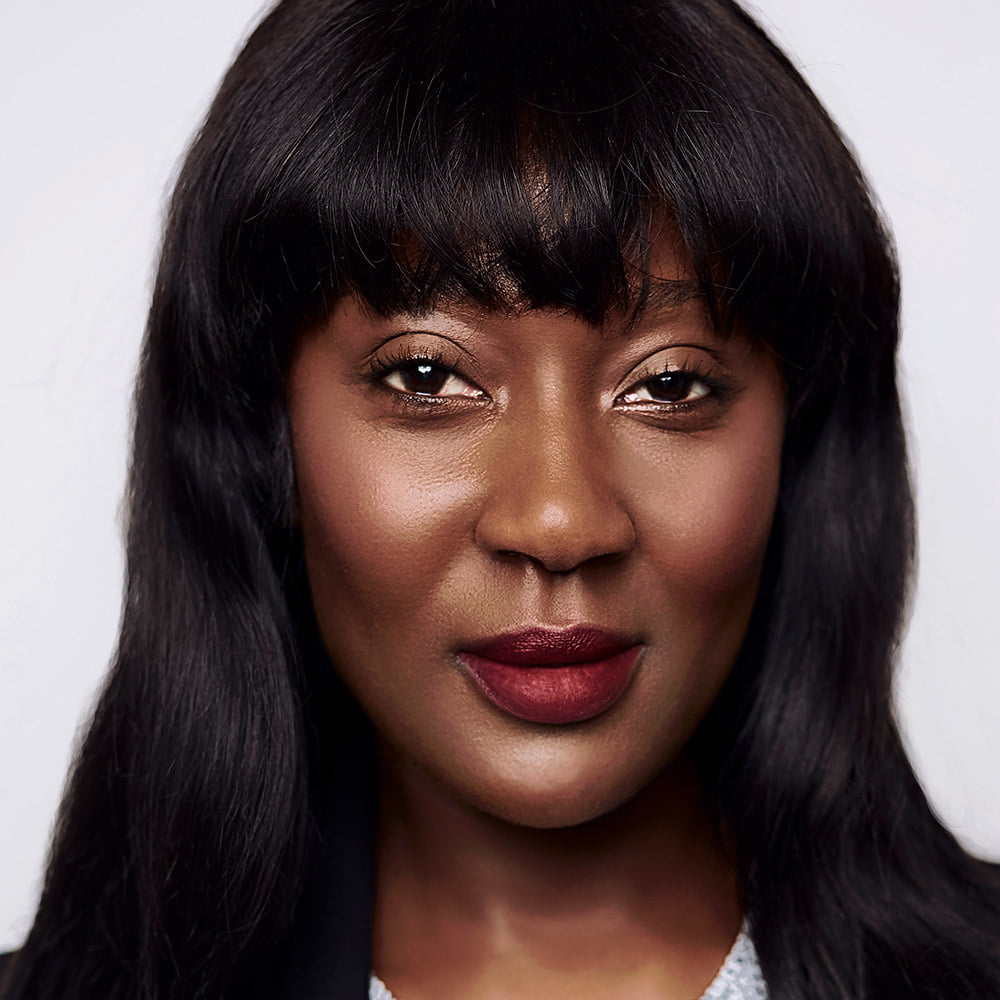Ellie Foumbi

Ellie Foumbi is a Cameroonian-American filmmaker whose debut feature, Our Father, the Devil, premiered at the Venice Film Festival.
It went on to win 27 prizes at international film festivals and was nominated for Best Feature at the Independent Spirit Awards.
She’s a BAFTA Breakthrough USA Fellow and was named one of 25 New Faces of Independent Film by Filmmaker Magazine.
She holds an MFA from Columbia University’s School of the Arts in Directing.
FILMOGRAPHY
2015 Uniform; short (co-director)
2016 Avalanche; short
2017 Last Day in Paradise; short
2017 Zenith; short
2019 No Traveler Returns; short
2019 Tales; tv series (1 episode)
2021 Home; short
2021 Our Father, the Devil; feature film
DIRECTOR’S STATEMENT
The idea for OUR FATHER, THE DEVIL initially blossomed from an urgent need to reconnect to my motherland of Africa but somehow morphed into an interrogation on the scars of war. Like most artists, I’m incredibly susceptible to my environment and the events around the world. Through my father’s work with the U.N., I had the privilege of conversing with survivors of the Rwandan genocide, which unearthed more questions about human nature. (…) This brought up a more pertinent question which fueled the development of the film. Is it possible to rewire yourself after surviving a life-altering traumatic event like war?
As I contemplated the unimaginable difficulties of leaving one’s home under such horrific circumstances, I couldn’t help but reflect on my own immigration to the United States from Cameroon. Though my family’s move was prompted by economic opportunity, the challenges we faced were very much connected to a sense of displacement. I was old enough to remember what our home looked like in Yaoundé but too young to feel any real connection to it. This made assimilating to my new country more complicated. I then tried to imagine arriving in this new country after having witnessed the murder of loved ones or friends. The question got even harder. What if I had participated in such atrocities? This is how the film’s focus shifted to child soldiers.
Through OUR FATHER, THE DEVIL’s narrative, I was forced to re-examine what it means to be an immigrant and the baggage one carries across borders. This film reminds us that it’s impossible to erase our past, but perhaps this past can reshape us in positive ways. Perhaps it can make us more empathetic to the suffering of others. Perhaps it can remind us that there are always kernels of goodness left in us, even after we have lived through unspeakable barbarity.

